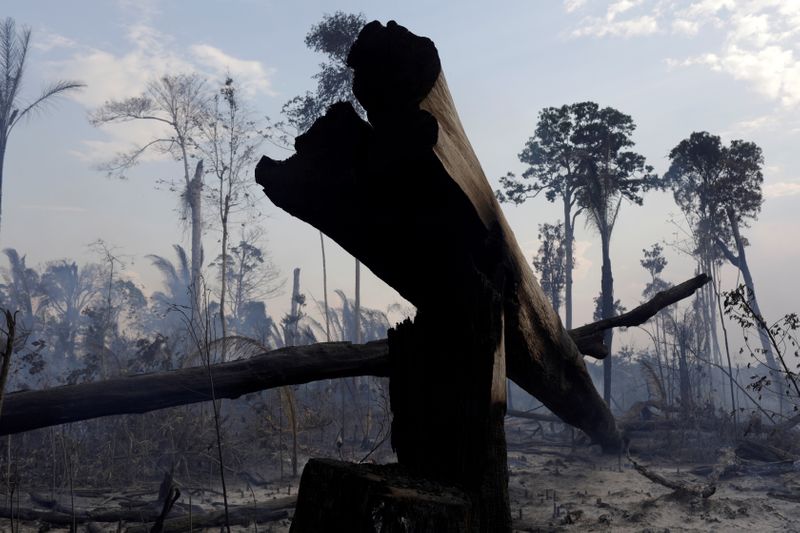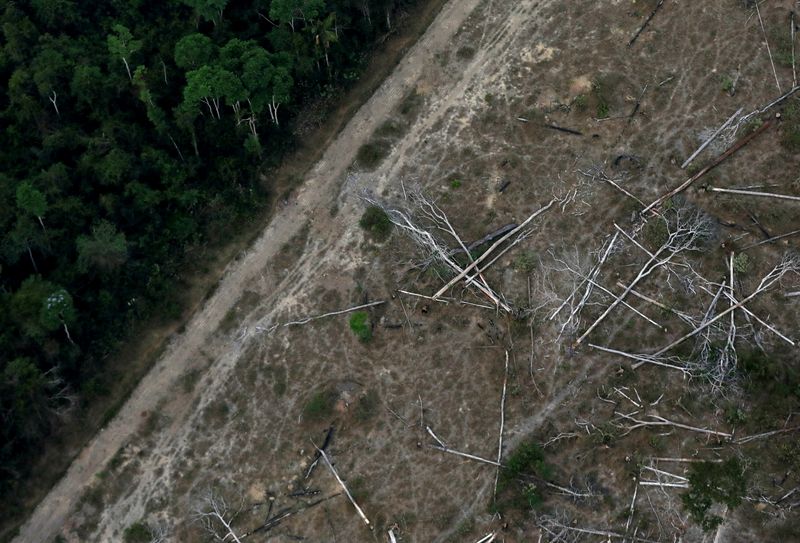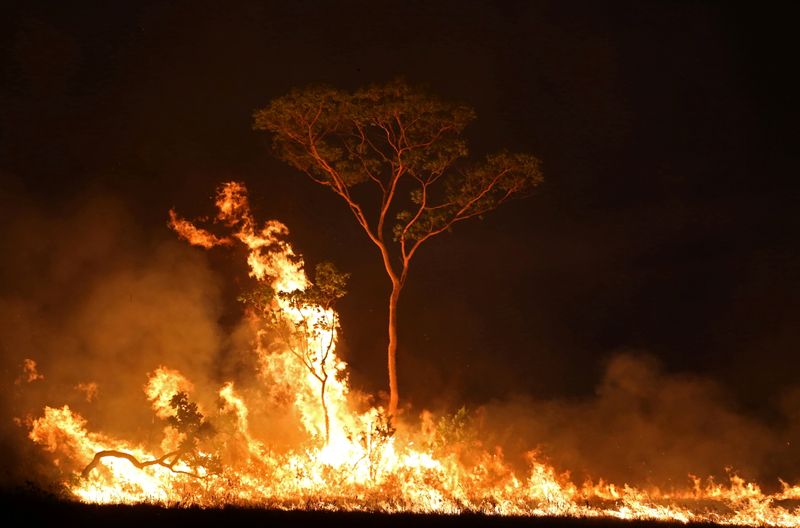BRASILIA (Reuters) – The United States and Brazil are at an impasse on a deal to stop destruction of the Amazon rainforest, which has surged under right-wing President Jair Bolsonaro, two people familiar with the matter told Reuters.
While Brazil wants to receive money upfront to pay for the protection of the world’s largest rainforest, the United States is insistent on seeing results first before it opens the purse strings, sources said.
Bolsonaro is expected to attend the high-profile U.S. Earth Day summit that starts April 22.
While former President Donald Trump, a Bolsonaro ally, did not criticize Brazil over its handling of the Amazon, the Biden government has placed the issue at the center of its relations with South America’s largest country.
Talks between the two sides began in February with a call between U.S. Climate Envoy John Kerry and Brazil’s environment and foreign ministers.
Lower-level negotiations since then have focused on the soaring destruction in Brazil’s share of the Amazon – a vital bulwark against climate change.
Deforestation in Brazil’s Amazon surged in 2019 after Bolsonaro took office and hit a 12-year high in 2020 when an area 14 times the size of New York City was destroyed, according to government data.
“We would hope to see a very clear commitment to ending illegal deforestation, tangible steps to increase the effective enforcement of illegal deforestation, and a political signal that illegal deforestation and encroachment will not be tolerated,” a State Department spokesperson said in a statement when asked about the talks.
“We believe it is realistic for Brazil to achieve a real decrease in deforestation by the end of the 2021 fire season.”
The spokesperson said the United States hoped Bolsonaro would use the summit to demonstrate his seriousness about climate and the Amazon.
Brazil’s foreign ministry in a statement said the meetings were exploratory and not formal negotiations.
The ministry said its efforts to combat deforestation since 2006 have avoided billions of tonnes of carbon dioxide emissions that if properly compensated would have a value of $30 billion to $40 billion.
To effectively combat deforestation, “large resources are needed, especially from international cooperation,” the ministry said.
A central impasse in negotiations remains on when the United States would pay Brazil.
Environment Minister Ricardo Salles, who is leading the Brazilian negotiators, has publicly asked for $1 billion in foreign aid in advance, that potentially could come from the United States with other partners. One of the sources confirmed that request has been made in the talks.
Salles told Brazilian newspaper O Estado de S.Paulo this month that upon receiving that money, Brazil could lower deforestation by 30%-40% in a span of 12 months.
Without money up front, he said Brazil would not be able to set a hard target.
But U.S. officials want to pay only once there are results. That includes a decline in deforestation this year, the two sources familiar with the negotiations said.
Bolsonaro appeared to meet one of the U.S. demands on Wednesday, with newspaper Folha de S.Paulo reporting he had sent a letter to Biden affirming that Brazil would end illegal deforestation by 2030.
That target was part of Brazil’s Paris agreement commitment made under the left-wing government of former President Dilma Rousseff, leaving doubts over whether Bolsonaro was working towards it.
A deal nevertheless seems unlikely by next week.
“I would not bet money on it,” one of the sources told Reuters. “It’s not that there’s been a lack of interest: it’s just that I don’t think there has been enough time to discuss a specific deal.”
(Reporting by Jake Spring; Additional reporting by Valerie Volcovici in Washington and Lisandra Paraguassu in Brasilia; Editing by Lisa Shumaker)























